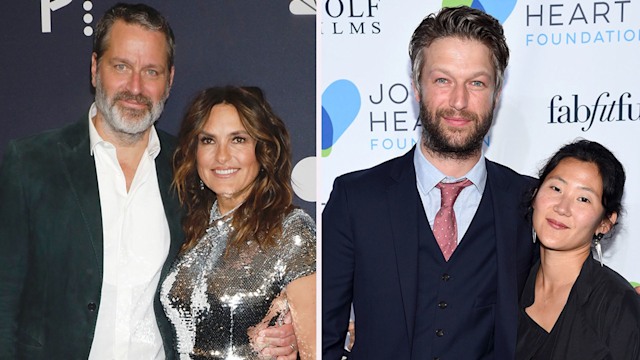
The Enduring Echo: Why Fans Are Still Obsessed with Law & Order: SVU After 25 Years
In the ephemeral landscape of television, where shows blossom and fade with the seasons, the quarter-century reign of Law & Order: Special Victims Unit stands as a monumental anomaly. What began as a spin-off, delving into the grim underbelly of sexually based offenses, has transcended its procedural roots to become a cultural institution, a comfort blanket woven with threads of trauma and resilience. After 25 years, an entire generation has come of age with Olivia Benson as their unwavering North Star, and the "dun-dun" as an almost sacred call to attention. The enduring obsession isn't merely a testament to longevity; it's a profound connection forged from a potent blend of unflinching relevance, iconic character evolution, and a unique, comforting yet challenging narrative formula.
At its core, SVU's magnetic pull lies in its relentless, often unsettling, mirror held up to society's most heinous crimes. While many procedurals offer escapism, SVU rarely shies away from the raw, painful truths of sexual assault, domestic violence, human trafficking, and the ever-evolving complexities of cybercrime. Long before "ripped from the headlines" became a cliché, SVU perfected it, distilling real-world controversies and injustices into compelling, often harrowing, narratives. From the #MeToo movement to the intricacies of consent in the digital age, the show has consistently adapted, dissecting timely social issues with a forensic lens. This commitment to contemporary relevance ensures that each episode, even those from decades past, feels remarkably pertinent, forcing viewers to confront uncomfortable realities and, perhaps, sparking vital conversations within their own communities. For many, SVU isn't just entertainment; it's a grim, educational treatise on the dark side of humanity, an often-necessary catharsis in a world that frequently fails to deliver justice.
Yet, a show cannot thrive for decades on social commentary alone. The true heartbeat of SVU beats within its characters, particularly the indomitable Olivia Benson. Portrayed with a raw, evolving vulnerability by Mariska Hargitay, Benson has become far more than a character; she's a cultural touchstone, a surrogate advocate for countless viewers. Her journey from a driven detective to a compassionate, battle-hardened captain mirrors the show's own growth, showcasing the emotional toll of the job, the sacrifices made, and the unwavering commitment to victims. Fans have witnessed her personal traumas, her professional triumphs, and her profound, often unstated, bonds with her colleagues—most notably, the electric, almost familial, chemistry with Elliot Stabler (Christopher Meloni), a partnership so iconic it spawned its own dedicated fan base and a spin-off. It’s this deep investment in the characters, watching them grapple with their own humanity while fighting for others, that fosters an emotional loyalty rarely seen in television. We don't just watch Benson; we root for her, we grieve with her, and we draw strength from her resilience.
Finally, the unique comforting yet challenging narrative formula of SVU ensures its lasting appeal. Despite the dark subject matter, the procedural format offers a reassuring predictability. The familiar "dun-dun," the opening narration, the meticulous investigation, the fraught legal battles, and the (often imperfect) pursuit of justice provide a ritualistic viewing experience. This structure, paradoxical as it may seem, acts as a sturdy frame that allows the show to tackle intensely disturbing themes without completely overwhelming the viewer. It's the television equivalent of comfort food – you know the ingredients, you anticipate the flavors, but each dish presents a new, compelling story. Furthermore, in a world that often feels chaotic and unjust, SVU, even in its bleakest moments, offers a faint glimmer of hope. It champions the victims, it dissects the complexities of the legal system, and it consistently posits that even in the face of unimaginable horror, there are those who will fight relentlessly for truth and accountability. This pursuit of justice, however fictional, provides a powerful balm, a sense that someone cares, someone hears, and someone will relentlessly pursue answers.
After 25 years, Law & Order: SVU is more than just a television show; it's a testament to the power of storytelling that dares to look into the abyss. Its enduring obsession among fans isn't a fluke but a deeply earned loyalty, cultivated through its courageous reflection of societal ills, the unwavering moral compass of its beloved characters, and a formula that manages to be both unsettling and profoundly comforting. As long as there are stories of injustice to be told and heroes like Olivia Benson to fight for the voiceless, the echo of the "dun-dun" will continue to resonate, drawing viewers back to its compelling, complex world, year after year after year.
